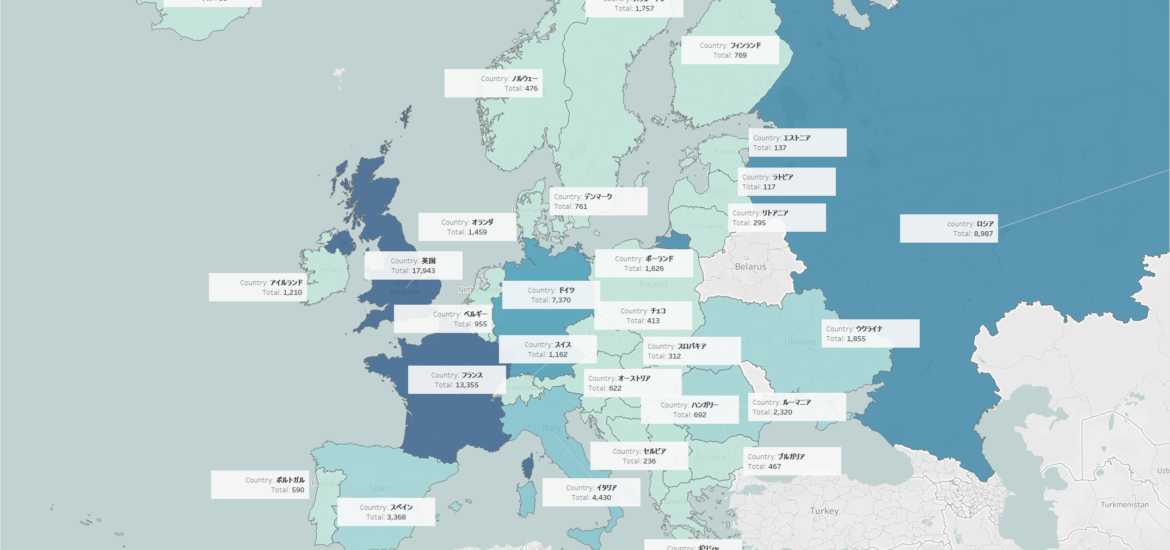This post attempts to answer some basic questions about the project, such as why is the project important, who can become part of it or whether the Europeans are actually migrants.
Why is it important?
Despite the rising numbers of people from Western countries moving to and settling in Japan, we still know very few about who they are and what they do. Europeans in Japan are such a case as well; their numbers have more than tripled since the 1990s, yet there are few researches, statistics or data available on such migrant. We still know more about the history of Europeans or Westerns in Japan than about their present (or recent) situation.
This is related to the perceptions of migrants in general and people such as Europeans, Westerners or “white” people are often not seen as migrants. It is often assumed that Westerners or white individuals moving across borders and residing in other countries are actually high class, professionals who are not seen as causing problems in terms of the job market (e.g., “stealing” jobs from the locals), culture (e.g., “destroying” the local culture), crime, or in terms of the integration to the host society. In other words, Westerners, whites or Europeans are often seen as un-problematic, highly mobile minority which is in contrast with the image of migrants as settlers who possibly cause a range of problems for the receiving society.
Are Europeans migrants?
However, with the accelerating globalization, the movement of people across the globe is not only increasing in volume, but the flows of people are getting increasingly more diverse and complex as well. Thus, it is much easier today to find someone from any country in the world residing in Japan than it was, for example, 30 years ago. As has also my previous research showed, you can find many Europeans settling in Japan or working on the same, not necessary highly-skilled jobs as, for example, migrants from Asia.
Such diversity and complexity regarding is reflected also in the UN definition of migrant. The UN’s Migration agency (International Migration Organization) defines a migrant as “any person who is moving or has moved across an international border or within a State away from his/her habitual place of residence, regardless of (1) the person’s legal status; (2) whether the movement is voluntary or involuntary; (3) what the causes for the movement are; or (4) what the length of the stay is” (source IOM). This research uses this broad definition of migrant and migration.
Can I become part of the project?
Any European living in Japan is welcomed to participate in this project. More particularly, anyone fulfilling the following two basic conditions is most welcome to participate in the questionnaire survey:
- a citizen of any of the European countries (including those who lost such citizenship due to naturalization in Japan etc.)
- staying in Japan on non-tourist visas or for longer than 6 months
The participants for the interviews will be selected by the researcher based on information I had on the participants beforehand. The main criteria for participation in this project are:
- to have an experience of living in Japan for about two years or longer (including those who still live in Japan and those who moved to Europe)
- to be a citizen of one of the European countries, or
- to be raised and living in one of the European countries for substantial period of time before coming to Japan
If you would be willing to participate in the questionnaire survey, please do so here. The survey is now open and is available in English, Japanese, French, Russian and Slovak versions.
If you would be willing to participate in the interview survey, you can leave your contact information at the end of the questionnaire or you can contact me directly via contact form here.
What about sampling?
Quantitative surveys are done in various forms but in general, in order to have solid results (particularly if you want to make claims on general population), the survey should be based on a so-called random sampling method. Whereas one of the most common random sampling methods became possible to apply on foreign residents in Japan in the recent years, there are several drawbacks which do not allow it to be used in this research on Europeans.
Consequently, the questionnaire survey will use so-called snowball sampling method, it means I will ask people I know and ask them to share the survey further utilizing also social networks such as Facebook. There are certainly other drawbacks to this method as well, but after consideration of different options this method promises to deliver reasonable outcomes with relatively high cost-performance ratio.
What about privacy and ethic standards?
This research follows the standards set by the Independent Review Board (IRB). The permission to conduct this research has been obtained from Ryukoku University and its Ethical Committee on Research Involving Humans for the interview survey (June 2019).
You can learn more about privacy protection of the participant in each of the surveys on the following links:
